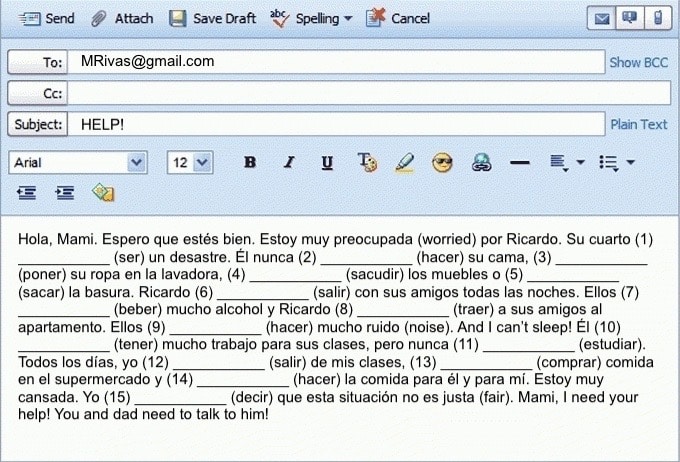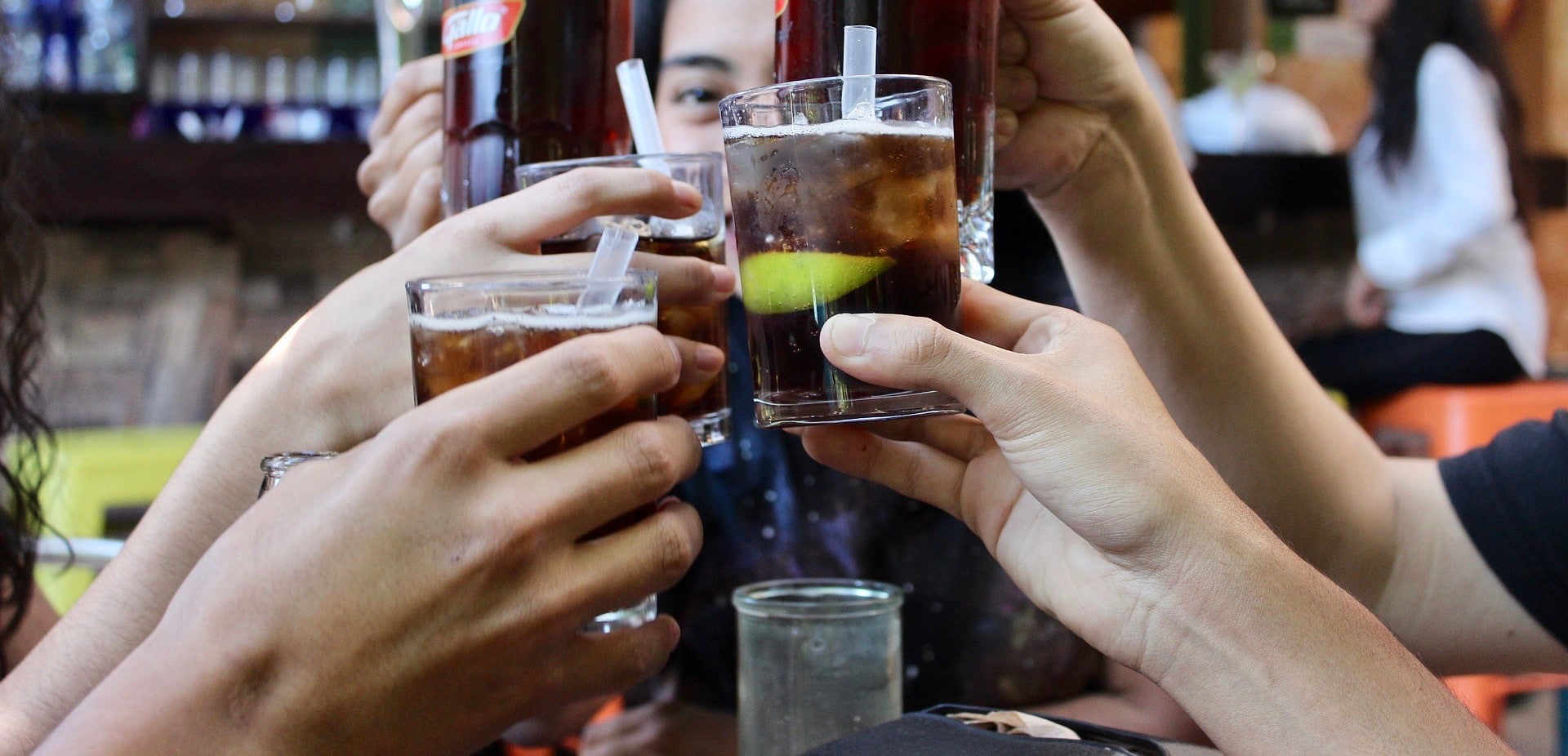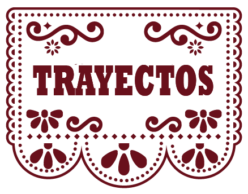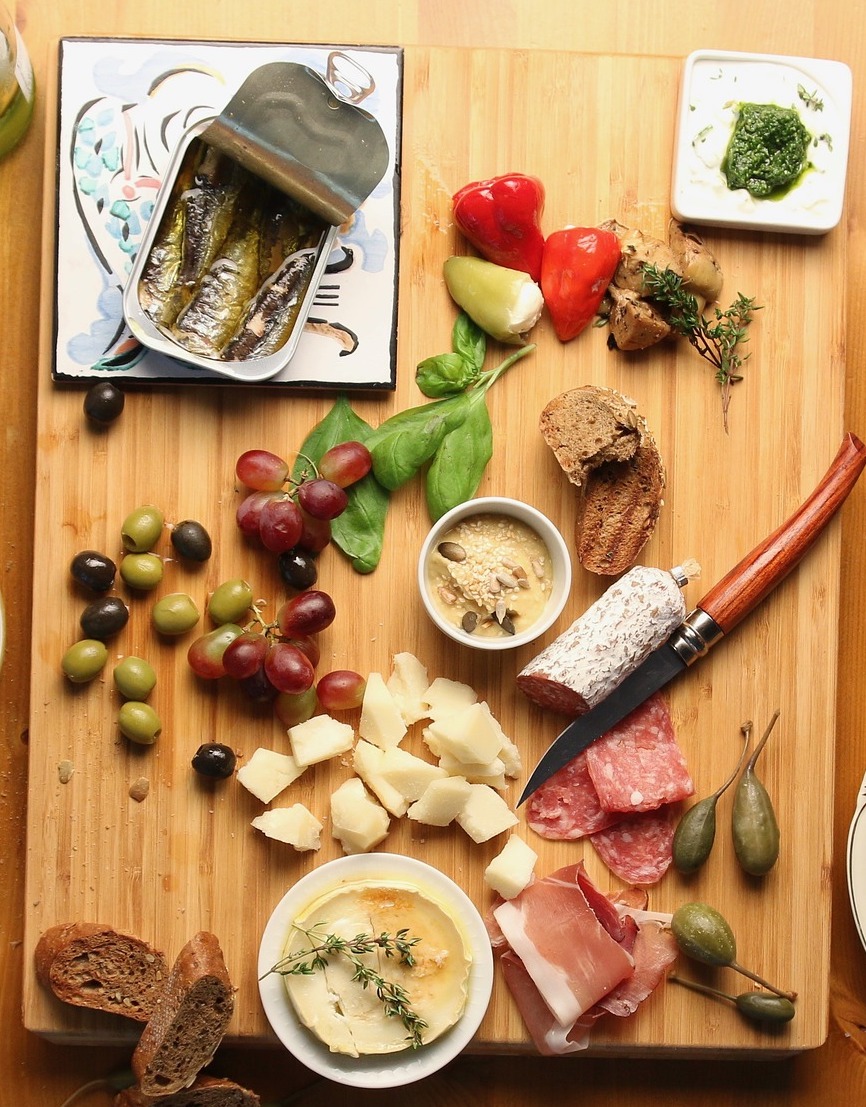Irregular verbs in the yo form: Uso y forma
Una fiesta en el apartamento de Kate
Kate, Lauren y su amiga mexicano-americana, Karina, organizan una fiesta en el apartamento de las chicas. ¿Qué hace cada una de ellas? Lee su conversación. Pay attention to the forms that they use in the first person (yo). Also, look at the tener forms. Use the list of verbs below to make sure you understand the content of the dialogue.
Lauren:
Kate:
Lauren:
Kate:
Karina:
Did you discover the differences in the conjugations of the bolded verbs in the yo form? These verbs have a different conjugation pattern in the first person singular than the verbs we’ve seen so far. They’re irregular verbs. Have a look at the following tables. What do you notice about the verbs tener and decir? What happens in other persons?
| Poner | Hacer (to do/make) | Traer (to bring) | Salir (to get out/to go out) | Dar (to give) | |
| yo | pongo | hago | traigo | salgo | doy |
| tú | pones | haces | traes | sales | das |
| vos | ponés | hacés | traés | salís | das |
| usted/Ud./ él/ella | pone | hace | trae | sale | da |
| nosotros/nosotras | ponemos | hacemos | traemos | salimos | damos |
| vosotros/vosotras | ponéis | hacéis | traéis | salís | dais |
| ustedes/Uds./ellos/ellas | ponen | hacen | traen | salen | dan |
There are some verbs that are irregular in other persons. This verb has a stem-change of e –> i. What do you notice about its conjugation? Which persons have conjugation irregularities?
| Decir (to tell, to say) | |
| yo | digo |
| tú | dices |
| vos | decís |
| usted/Ud./ él/ella | dice |
| nosotros/nosotras | decimos |
| vosotros/vosotras | decís |
| ustedes/Uds./ellos/ellas | dicen |
These verbs have a stem-change of e –> ie. What do you notice about their conjugation? Which persons have conjugation irregularities?
| Tener (to have) | Venir (to come) | |
| yo | tengo | vengo |
| tú | tienes | vienes |
| vos | tenés | venís |
| usted/Ud./ él/ella | tiene | viene |
| nosotros/nosotras | tenemos | venimos |
| vosotros/vosotras | tenéis | venís |
| ustedes/Uds./ellos/ellas | tienen | vienen |
Ahora mira este video. It offers a summary of the ways in which we conjugate these verbs, and others that behave in a similar way.
![]() Las formas irregulares en el presente
Las formas irregulares en el presente
Attribution: By Daniel Hernández Ruiz, licensed under CC BY 4.0.
Ahora usamos estos verbos para expresar nuestras ideas. Es hora de Actividad 3-16. Más verbos interesantes Visita la página en http://bit.ly/ActividadVerbos y completa todas las actividades en línea. Be ready to discuss your results with other classmates. ¿Tienes unos verbos nuevos? Add the new words you have learned to your glossary for this module. Trabaja con un@ compañer@. Ustedes son compañer@s de apartamento y tienen una fiesta en su apartamento. Hablan y organizan la fiesta. Usan estos verbos: tener, poner, traer, salir, hacer, venir, decir, dar y el vocabulario de este módulo y los módulos anteriores. Usan el diálogo entre Kate y sus amigas como ejemplo. You need to decide when the party is going to be, what time, and who you’re going to invite. ¿Qué música ponen en la fiesta? E1: Yo hago la comida. Actividad 3-18. Un email a mamá Remember Karina, Kate and Lauren’s friend? En Madrid, Karina comparte (shares) un piso con su hermano Ricardo. Karina no está contenta con su hermano y decide escribir un email a su mamá en Laredo. También ella le manda (send) a su mamá estas fotos. Paso 1. Completa los espacios en el email de Karina con la conjugación de los verbos en paréntesis. Trabaja con un@ compañer@. Based on the three photos above, create a profile of Ricardo. ¿Cómo es Ricardo? Describe his physical appearance, personality, and likes and dislikes. Do you know anyone like Ricardo? En esta actividad trabajas con cuatro compañer@s. You and your partner need to share your profile of Ricardo with another pair. Whose profile is more interesting? ¿Cómo es el futuro de Ricardo?![]() ¡Manos a la obra!
¡Manos a la obra!
![]() Actividad 3-17. Una fiesta en casa
Actividad 3-17. Una fiesta en casa
E2: Muy bien. ¿Qué haces?
E1: Hago hamburguesas. Y tú, ¿qué haces?




![]() Paso 2
Paso 2![]() Paso 3
Paso 3
Click on the following button to continue using your new verbs.
Now let’s learn more about Ricardo’s daily emotions and feelings. Vamos a


